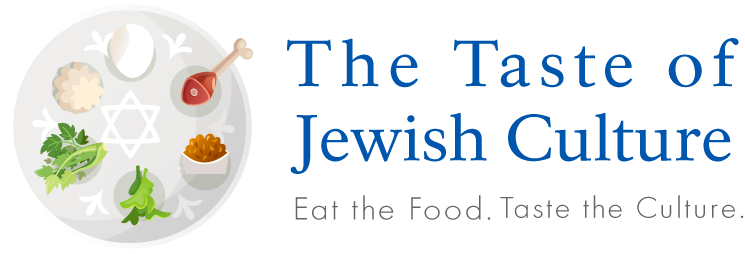Charoset is eaten at the Passover Seder, but unlike many other foods, its origins are a bit less clear. It is certainly ancient, but it isn't mandated in the Torah, as is matzah. Furthermore, we know that it is a symbolic food, but what EXACTLY is it a symbol of?
By exploring charoset, as well as many other symbolic foods from different Jewish holidays, we learn a lot about the Jewish people via its approach to celebratory foods.
Interview: Susan Weingarten
Episode Notes
Definitions:
"Apicius" - A recipe collection from ancient Rome, compiled around the 5th century, but based on many older documents.
"Cairo Geniza" - A repository of document and book fragments found in a synagogue in Fustat, the Old City of Cairo. Many of the selections date to the 10th-11th centuries, but the full span stretches from the 6th through the 19th centuries.
"Embamma" - An ancient Roman dipping sauce
"Hyssop" - An herb, related to oregano. The main ingredient in the za'atar spice blend of the Middle East.
"Mishnah" - Part of the "Oral Law" that first codified Halacha, or Jewish religious law. Redacted C 200 C.E.
"Pesach" - The Hebrew name for the holiday of Passover
"Shavuot" - One of the three "pilgrimage festivals" of Judaism, taking place in late spring.
"Talmud" - Further rabbinic discussions expounding upon the Mishnah. There are two separate Talmuds. The Jerusalem Talmud was finished being edited around the year 400 +/- and the Babylonian Talmud around 500 C.E.
"Apicius" - A recipe collection from ancient Rome, compiled around the 5th century, but based on many older documents.
"Cairo Geniza" - A repository of document and book fragments found in a synagogue in Fustat, the Old City of Cairo. Many of the selections date to the 10th-11th centuries, but the full span stretches from the 6th through the 19th centuries.
"Embamma" - An ancient Roman dipping sauce
"Hyssop" - An herb, related to oregano. The main ingredient in the za'atar spice blend of the Middle East.
"Mishnah" - Part of the "Oral Law" that first codified Halacha, or Jewish religious law. Redacted C 200 C.E.
"Pesach" - The Hebrew name for the holiday of Passover
"Shavuot" - One of the three "pilgrimage festivals" of Judaism, taking place in late spring.
"Talmud" - Further rabbinic discussions expounding upon the Mishnah. There are two separate Talmuds. The Jerusalem Talmud was finished being edited around the year 400 +/- and the Babylonian Talmud around 500 C.E.
Sources and Links:
Susan Weingarten, Haroset: A Taste of Jewish History
Exodus 12:8
Midrash about Apple Trees
Chida
Some of the "reasons" for eating dairy on Shavuot
About Rosh Hashana symbolic foods
Eating Haman's Body Parts
Shais Rishon's slave-crop charoset






